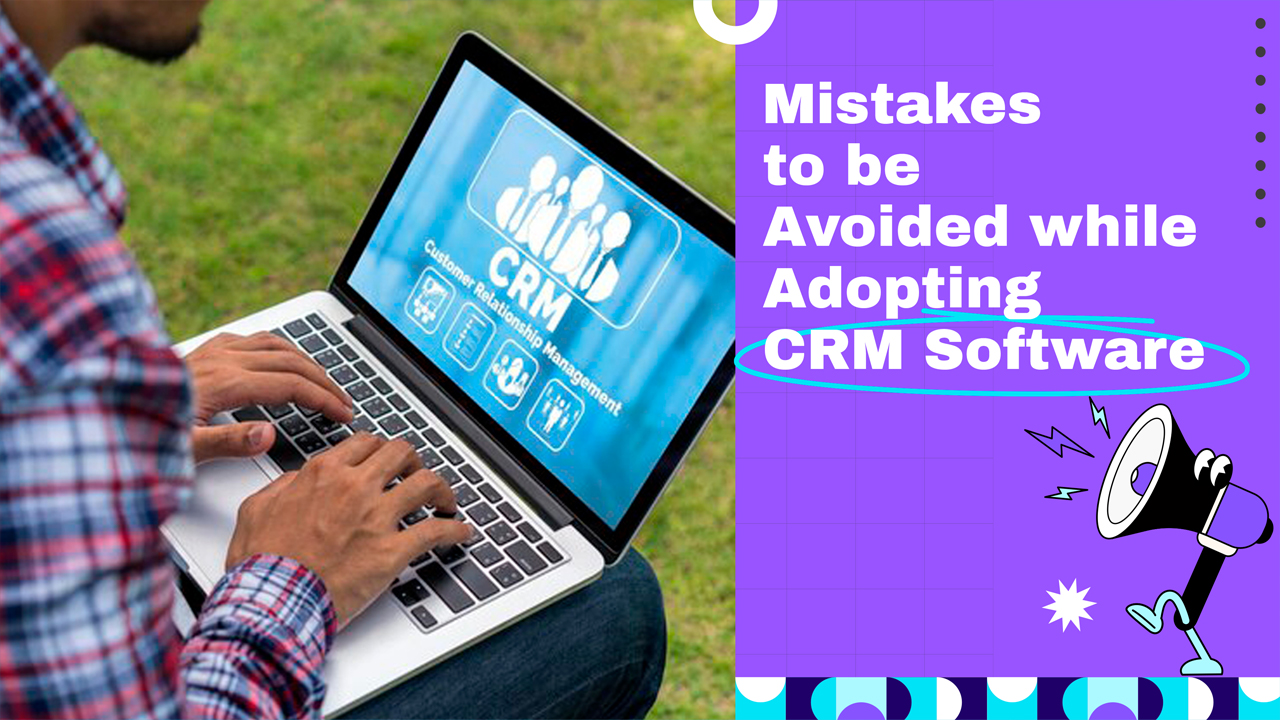
In the dynamic and competitive landscape of small businesses, Customer Relationship Management (CRM) software has become an indispensable tool for fostering customer loyalty, streamlining operations, and driving growth. However, the process of adopting CRM software is not without its challenges.
Many small businesses make common mistakes that can hinder the effectiveness of their CRM implementation. In this blog post, we will explore key considerations and offer practical insights to help small businesses avoid pitfalls and select the best CRM software for small business their unique needs.
What is CRM System?
Customer Relationship Management (CRM) is a business strategy and technology-driven approach aimed at managing and enhancing interactions with customers throughout their lifecycle. CRM systems consolidate customer data, enabling businesses to gain a holistic view of their clientele. By automating and optimizing sales, marketing, and customer service processes, CRM facilitates personalized engagements, improves customer satisfaction, and fosters long-term loyalty.
The centralization of customer information, coupled with analytics and reporting tools, empowers organizations to make data-driven decisions, track performance metrics, and continuously refine their strategies to meet evolving customer needs. Ultimately, CRM is a powerful tool that helps businesses build, nurture, and sustain meaningful relationships with their customers for sustainable growth.
Common mistakes to be avoided in adopting the best CRM software for small business
Lack of Clear Objectives
One of the most common mistakes small businesses make is adopting CRM software without clearly defined objectives. Before diving into the sea of CRM options, it’s crucial to identify specific goals and outcomes. Whether it’s improving customer engagement, increasing sales, or optimizing internal processes, having a clear vision will guide you towards a CRM solution that aligns with your business needs.
Not Doing Your Research
One of the biggest mistakes you can make when choosing a CRM for your small business is not doing your research. There are so many different CRM software options out there, and it’s important to take the time to research each one and determine which one is the best fit for your business. Take the time to read reviews and compare features and prices. You should also talk to other small business owners who have used different CRM software to get their opinion. Doing your research will help you make an informed decision and ensure that you get the best CRM software for small business.
Neglecting Scalability
Small businesses are dynamic entities that evolve over time. When selecting CRM software, it’s essential to consider scalability. Opting for a solution that can grow with your business prevents the need for frequent migrations and minimizes disruption to your operations. Assess the scalability features of potential CRM systems to ensure they can accommodate your business’s future expansion.
Not Testing the Software
Once you’ve narrowed down your choices, it’s important to test the software before committing to it. Most CRM software companies offer free trials or demos, so take advantage of those and test out the software. This will give you a better idea of how it works and if it’s the right fit for your business.
Ignoring Integration Capabilities
Small businesses often operate with multiple tools for various functions such as marketing, sales, and customer support. Ignoring the integration capabilities of CRM software can lead to siloed data and inefficient workflows. Look for a CRM solution that seamlessly integrates with existing tools, ensuring a cohesive and synchronized approach to managing customer relationships. For example, if you’re a small business that doesn’t need a lot of customer service features, then you don’t need to invest in a CRM that has a lot of customer service features. On the other hand, if you’re a business that needs to track customer data and sales, then you’ll want to invest in a CRM that has those features.
Neglecting Mobile Accessibility
Choosing best CRM software for small business in today’s fast-paced business environment and the ability to access CRM data on the go is crucial. Neglecting mobile accessibility is a common oversight. Ensure that the CRM software you choose offers robust mobile capabilities, allowing your team to stay connected and productive, whether they’re in the office or on the road.
Underestimating Customization Needs
Every business is unique, and a one-size-fits-all CRM solution may not address your specific requirements. Underestimating customization needs is a mistake that can hinder the software’s effectiveness. Prioritize CRM systems that offer a high degree of customization, allowing you to tailor the platform to your business processes and industry nuances.
Failing to Consider Data Security
The security of customer data is a paramount concern for businesses of all sizes. Failing to consider data security when adopting best CRM software for small business can have severe consequences. Prioritize solutions that adhere to industry standards for data protection and encryption. Verify the vendor’s security protocols and ensure compliance with regulations relevant to your industry.
Disregarding Total Cost of Ownership
While the upfront cost of CRM software is a significant consideration, it’s equally important to assess the total cost of ownership (TCO). This includes ongoing subscription fees, maintenance costs, and potential expenses related to customization and integrations. A transparent evaluation of TCO ensures that your chosen CRM solution remains cost-effective in the long run.
Vendor Reputation and Support
Choosing a reputable top CRM vendor is as important as selecting the right software. Examine the vendor’s performance history, client testimonials, and degree of customer service. A reliable vendor provides regular software updates, addresses security vulnerabilities promptly, and offers responsive customer support. Establish a long-term relationship with a vendor that aligns with your business values and demonstrates a commitment to supporting your CRM needs.
Conclusion
Selecting and adopting the best CRM software for small business requires careful consideration and avoidance of common pitfalls. By setting clear objectives, prioritizing user adoption, considering scalability and integration capabilities, and addressing data security concerns, businesses can make informed decisions that contribute to the long-term success of their CRM implementation. Remember, the right CRM software is not just a tool; it’s a strategic investment that empowers your business to build and nurture valuable customer relationships.

